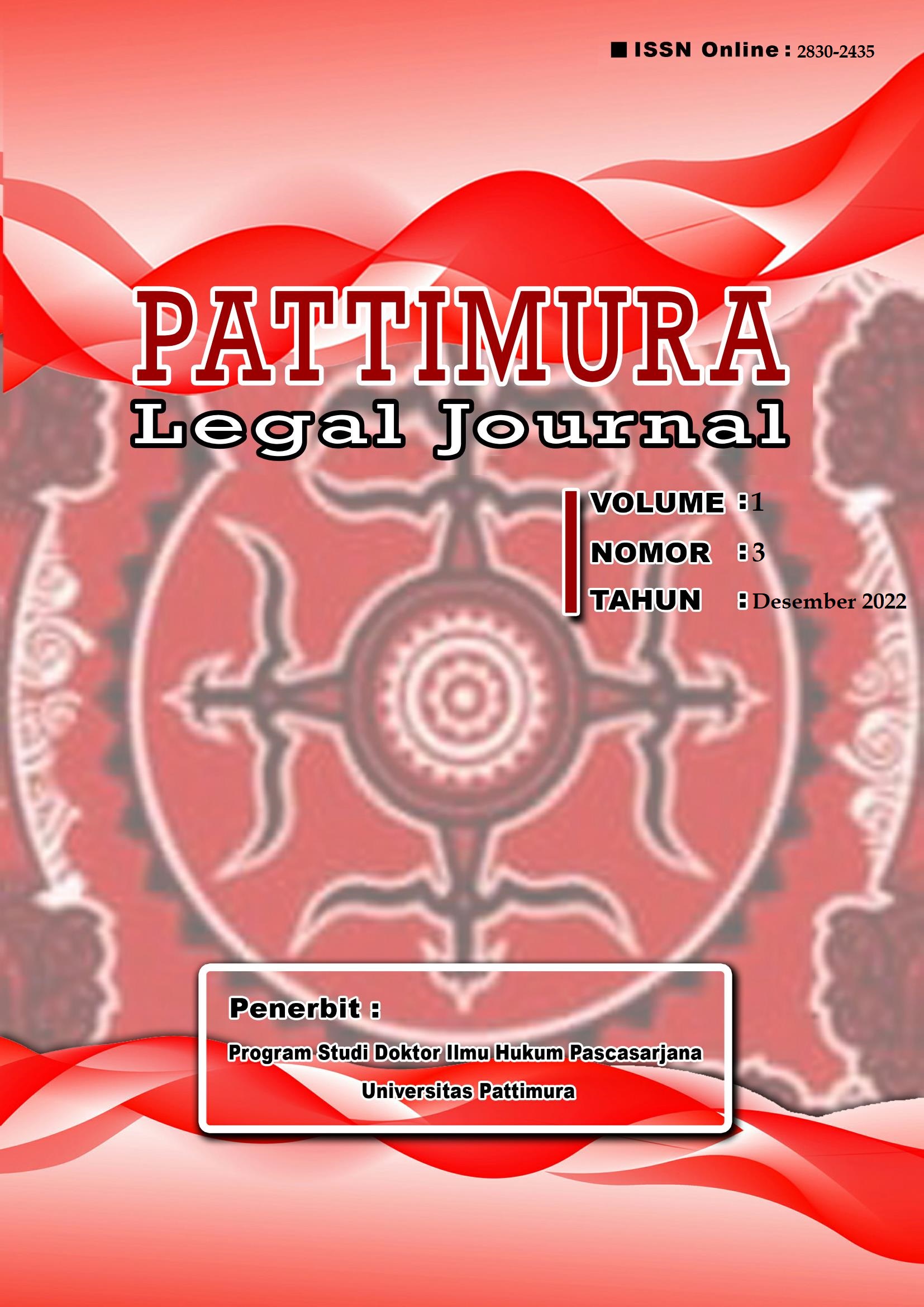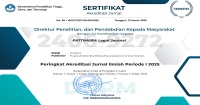Penerapan ILO Convention Nomor 111 Ke dalam Undang-Undang Ketenagakerjaan Di Indonesia
Abstract
Introduction: Discrimination in employment and occupation through the Law of the Republic of Indonesia Number 21 of 1999 concerning Ratification of the ILO Convention No. 111 Concerning Discrimination In Respect Of Employment And Occupation by implementing it in Article 5 of Law Number 13 of 2003 concerning Employment. However, Article 5 Law 13 of 2003 concerning Manpower have not specifically defined discrimination so that there is still discrimination against job seekers in company job vacancies.
Purposes of the Research: To find out how the implementation of ILO Convention No. 111 into the Indonesian Manpower Act regarding legal protection for job seekers from discriminatory work requirements and find out what Indonesia's policies are after ratifying ILO Convention No. 111.
Methods of the Research: The type of research used is normative legal research, namely using literature studies in searching the data.
Results Originality of the Research: The results showed the application of the ILO Convention No. into the Indonesian Manpower Law regarding Legal Protection for Job Seekers. Indonesia's labor regulations are still not specific in terms of discrimination in the field of employment, so it is necessary to make more detailed and specific rules regarding this matter which can later become a clear legal basis in terms of discrimination in the field of employment and protect the rights of Indonesian job seekers.
Downloads
References
Jurnal
Awaliyah, Siti. “The Effectiveness of Anti Discrimination Law for Jon Seekers in Indonesia.” Journal of Law Policy and Globalization 51 (2016).
Mulyanto, Kartika Dewi. “Urgensi Ratifikasi Konvensi Pekerjaan Yang Layak Bagi Pekerja Rumah Tangga.” Undang: Jurnal Hukum 1, no. 1 (2018): 119–33. https://doi.org/10.22437/ujh.1.1.109-133.
Ningrum, Panggih Kusuma, Tatdow Pansombut, and Attachai Ueranantasun. “Text Mining of Online Job Advertisements to Identify Direct Discrimination during Job Hunting Process: A Case Study in Indonesia.” Plos One 15, no. 6 (2020): 1–29. https://doi.org/10.1371/journal.pone.0233746.
Puspitosari, Hervina, and Andina Elok Puri Maharani. “Pengarusutamaan Gender Di Bidang Ketenagakerjaan.” Ratu Adil 3, no. 1 (2014): 1–19.
Buku
Ali, Zainuddin. Metode Penelitian Hukum. Jakarta: Jakarta: Sinar Grafika, 2016.
Muhtaj, Majda El. Dimensi-Dimensi HAM Mengurai Hak Ekonomi Sosial Budaya. Jakarta: Raja Grafindo Persada, 2008.
Pratomo, Eddy. Hukum Perjanjian Internasional : Pengertian, Status Hukum Dan Ratifikasi. Bandung: Alumni, 2011.
Sefriani. Hukum Internasional: Suatu Pengantar. Yogyakarta: Rajawali Pers, 2018.
Soekanto, Soerjono, and Sri Mamudji. Penelitian Hukum Normatif, Suatu Tinjauan Singkat. Jakarta : Raja Grafindo Persada. Jakarta: Rajawali Pers, 2015.
Online/World Wide Web, Disertasi/Tesis/Skripsi, Dan Lain-Lain
Amrullah, Muhammad Ridho. “Mekanisme Pengawasan ILO Di Negara Anggota Atas Penerapan Konvensi ILO Yang Telah Diratifikasi.” Biro Hukum Sekretariat Jenderal Kementerian Ketenagakerjaan. 2013.
Antara News. “IWD 2022, FJPI Dan Menaker Sepakat Dobrak Bias Gender.” antaranews.com, 2022. https://sumut.antaranews.com/berita/464797/iwd-2022-fjpi-dan-menaker-sepakat-dobrak-bias-gender.
ilo.org. “Direct Request (CEACR) - Adopted 2020, Published 109th ILC Session (2021).” www.ilo.org, n.d. https://www.ilo.org/dyn/normlex/en/f?p=NORMLEXPUB:13100:0::NO::P13100_COMMENT_ID,P11110_COUNTRY_ID,P11110_COUNTRY_NAME,P11110_COMMENT_YEAR:4057677,102938,Indonesia,2020.
isnakertrans.ntbprov.go.id. “Dialog Gugus Tugas Kesempatan Dan Perlakuan Yang Sama Dalam Pekerjaan Tahun 2017.” https://disnakertrans.ntbprov.go.id/, 2017. https://disnakertrans.ntbprov.go.id/dialog-gugus-tugas-kesempatan-dan-perlakuan-yang-sama-dalam-pekerjaan-tahun-2017/.
Kementerian Ketenagakerjaan Republik Indonesia. Kesetaraan Dan Non Diskriminasi Di Tempat Kerja Di Indonesia : Panduan. Jakarta: Kemenakertrans, 2015.
Copyright (c) 2022 Layla Murni, Evi Deliana HZ, Ledy Diana (Author)

This work is licensed under a Creative Commons Attribution-NonCommercial 4.0 International License.
Authors who publish their manuscripts in this Journal agree to the following conditions:
- The copyright in each article belongs to the author, as well as the right to patent.
- Authors are able to enter into separate, additional contractual arrangements for the non-exclusive distribution of the journal's published version of the work (e.g., post it to an institutional repository or publish it in a book), with an acknowledgment of its initial publication in this journal.
- Authors are permitted and encouraged to post their work online (e.g., in institutional repositories or on their website) prior to and during the submission process, as it can lead to productive exchanges, as well as earlier and greater citation of published work.
- Authors have the right to self-archiving of the article (Author Self-Archiving Policy)






















